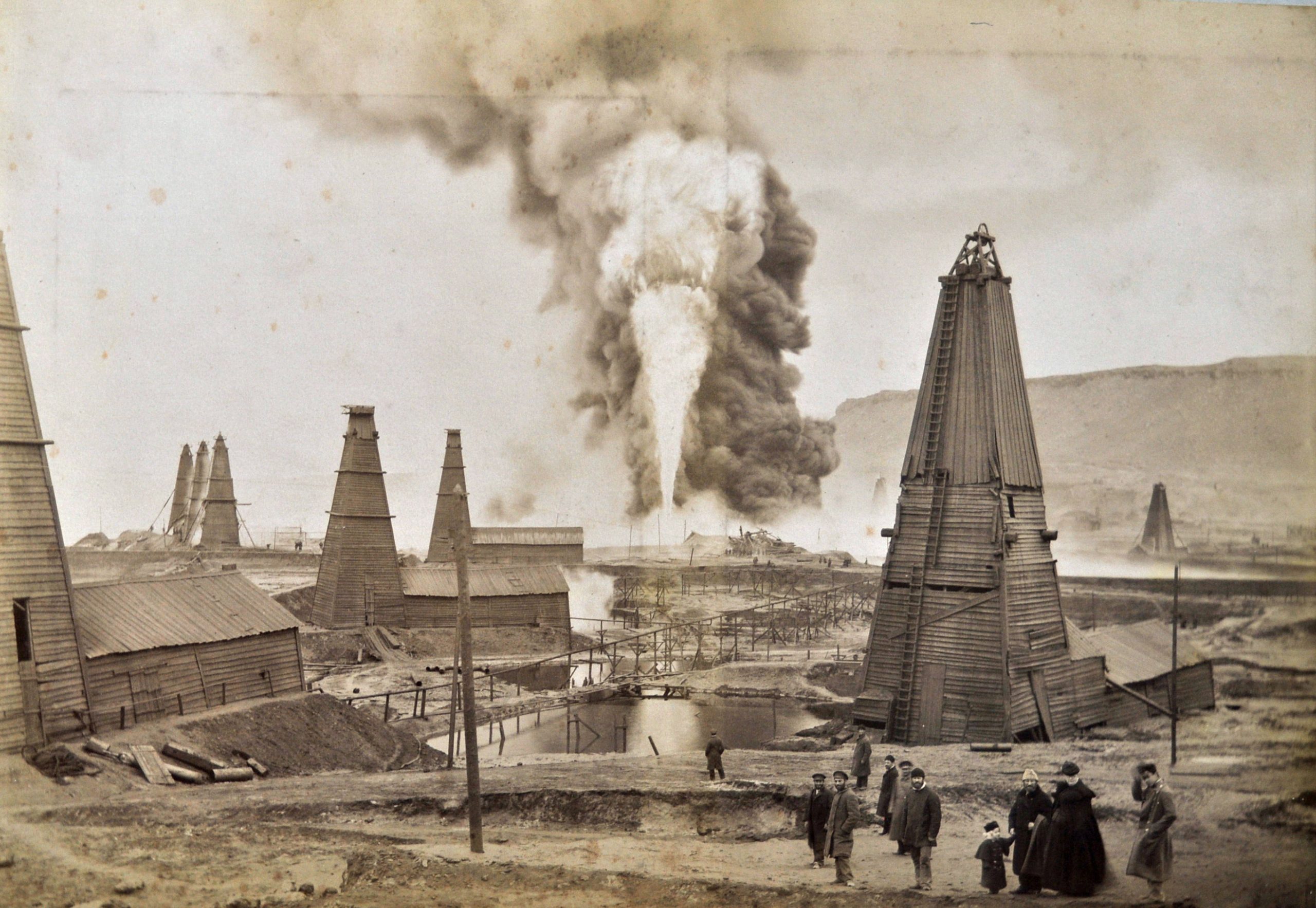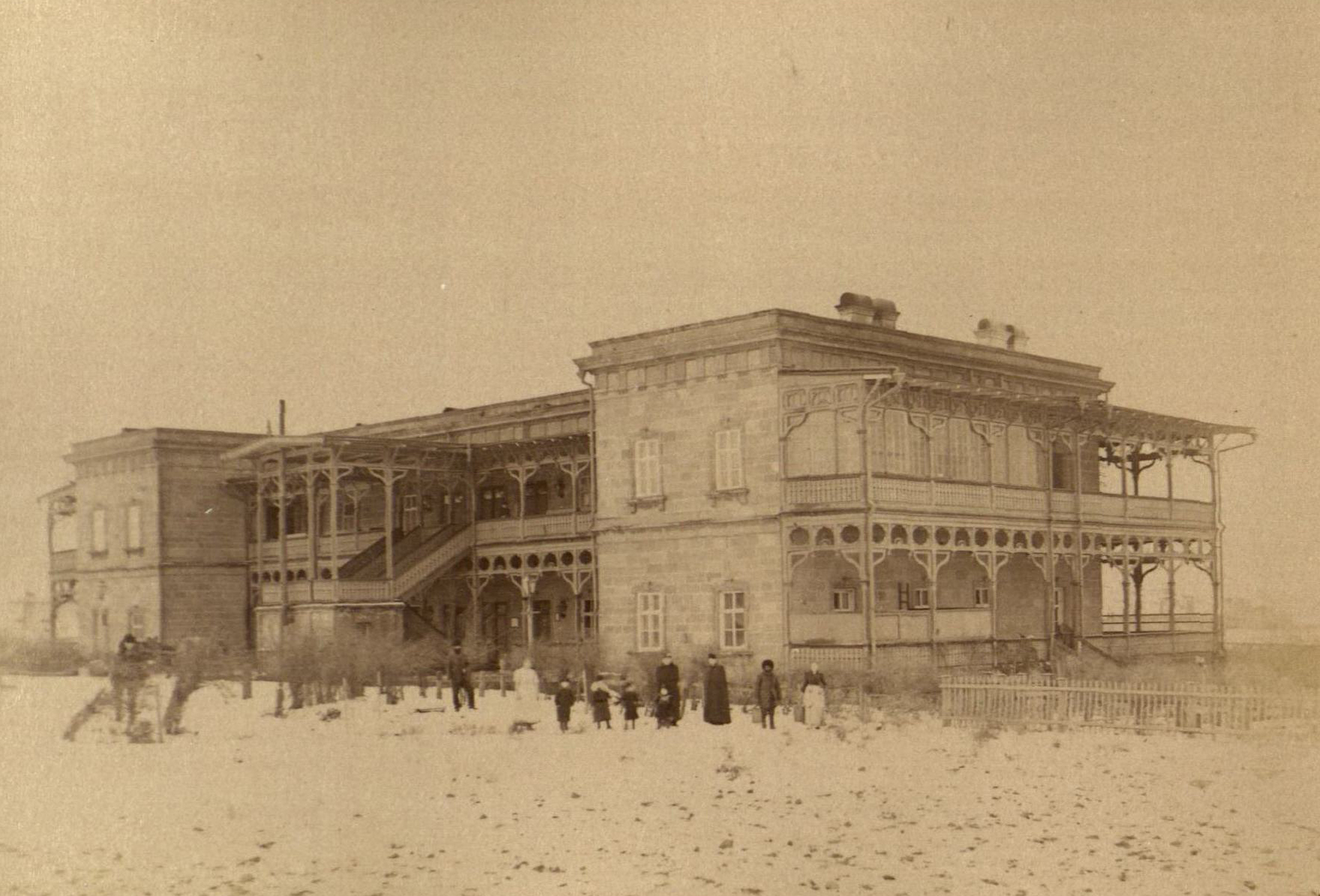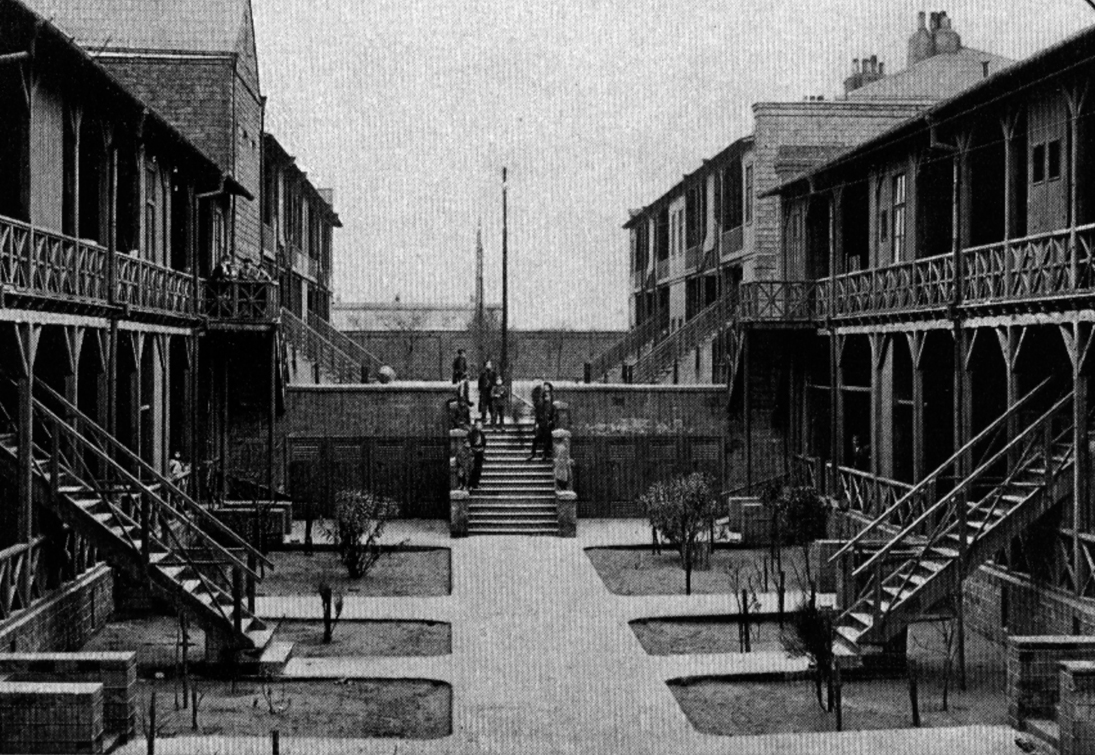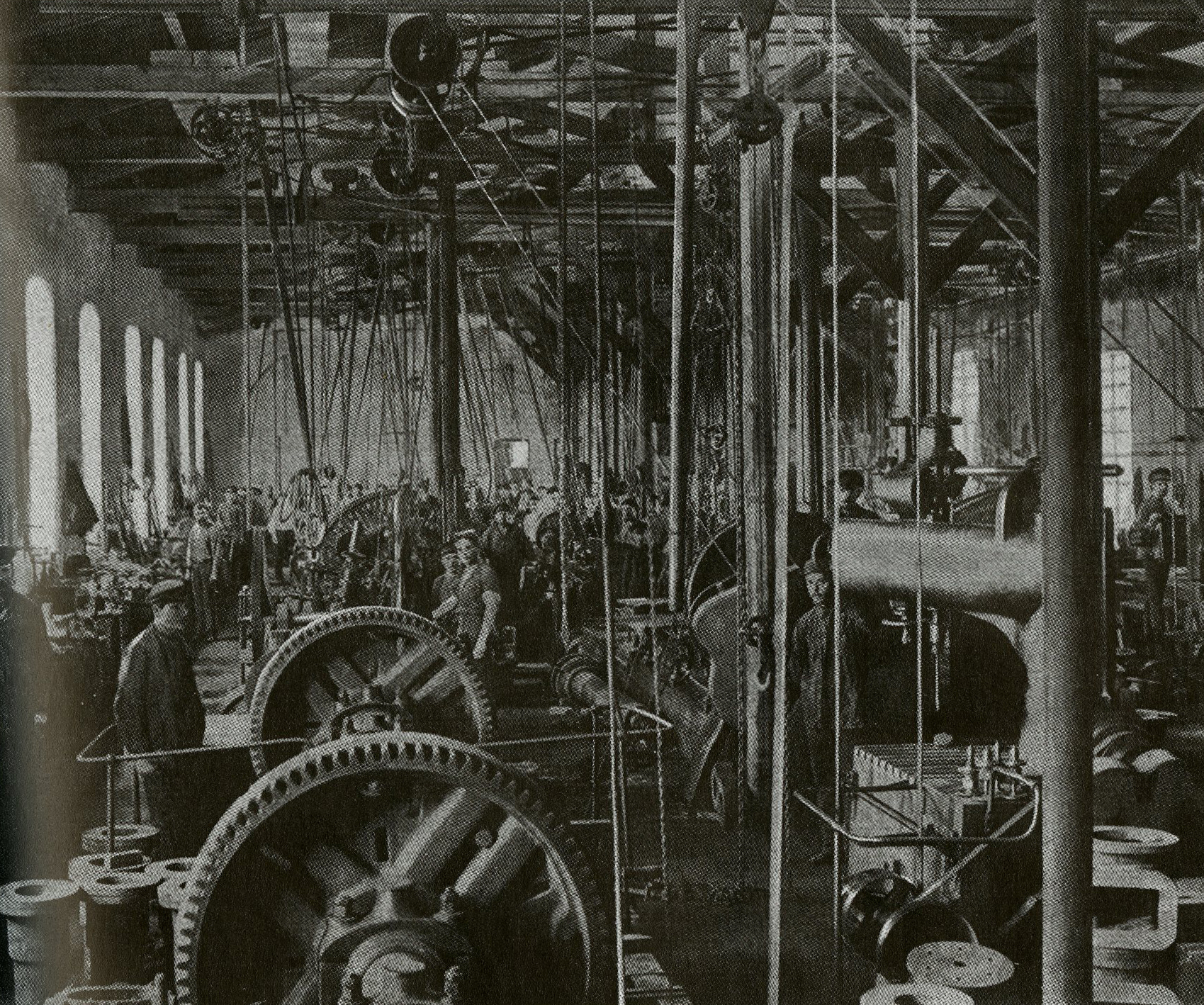In the middle of the 1880s, the battle for power over the world’s oil markets between first and foremost, Branobel, the American Standard Oil and the French family the Rothschilds’ company, BNITO, gets tougher. Agreements and treachery, bribes, industrial espionage, price wars, gossip and slander – every means available was used in the war over the oil market.
The first sign came when Rothschild Fréres contacted the Nobels to hear if they were interested in future cooperation. In 1883, the French finance company Rothschild, had formed BNITO, the Caspian and Black Sea Petroleum Company, and had large plants in the port of Batum on the Black Sea. Factories worked at high pressure and 5,000 ships loaded and unloaded goods. But the development of the distant Caucasus became seen more and more as an increasing threat in the USA and Europe and, as a result of the Rothschilds making contact with the Nobels, a thirty year battle for domination of the world’s oil markets began.
During negotiations in Paris in May 1884, Branobel was represented by Alfred Nobel, the faithful old servant Michail Beliamin and the economist, Ivar Lagerwall. Ludvig Nobel, who was considering new investments of five million roubles in Baku and Batum, instructed his negotiators to discuss selling 25 percent of Branobel’s shares. This would be able to pay for part of the planned investments and he would be able to bring the rest in by selling bonds. But the Rothschilds wanted a majority shareholding in Branobel or nothing at all. Ludvig Nobel needed to find some other form of financing for the new investments and entered into negotiations with the Berlin Diskonto Bank.
By 1883, the American paraffin had been driven out of competition on the Russian market. The American Standard Oil threw out a feeler about a partial merger with Branobel. They saw Ludvig Nobel as an invaluable leader with his knowledge of the Russian market.
These events had forewarned Ludvig and he prepared himself to counter the attempts to take over the territories Branobel had won. The sales department was given a new, strong leader in the Russian, Gysser, the head of the transport firm Schenmann and Spiegel in St Petersburg. A new sales organisation was created in Austria (OENIG) with the right to sell oil products in southern Germany and Switzerland. Soon the whole of Europe was part of Branobel’s distribution network, but not France, where Rothschild reigned. The company Alexander André, in Paris, had however, the sole right to sell Nobel’s lubricating oil and masut across the entire continent. It was now, in 1885 at Motala Workshop in Sweden, that Ludvig ordered the ocean-going oil tanker, Petrolea, which would go to Scandinavia, Germany and Belgium. He also set up depots in Stockholm, Lübeck, Swinemünde, Copenhagen and Antwerp.
The steamers, ”Ferguson” and ”Sviet”, both built at Motala workshop in Sweden, began to operate on the Black Sea that same year. ”Sviet’s” owner was the Russian Steam and Trading Co. It was a breakthrough for the energy market when ”Sviet” first arrived in London in 1885, fully loaded with paraffin in its tanks. The oil products were most in demand in Russia, then came England, Germany, Belgium, Sweden and Denmark, and Gysser believed in future expansion. Then Standard Oil suddenly reduced its prices. Rockefeller controlled more than 90 percent of American exports and could afford price reductions. This was a trick that would be repeated in the future. At that time, Standard Oil dominated the world’s oil market, with the exception of Russia.
Branobel’s sales were hit immediately by the price reduction. Standard Oil also took to sabotage, spreading rumours and bribes to damage Branobel, and Ludvig Nobel had to employ independent scientific expertise to counter the attacks. In turn, Standard Oil had its problems in England. The Ohio oil was of a low quality and consumers were complaining.
In the following years, Branobel succeeded in taking a third of the English market. This was done together with the Rothschilds and through the agent, Bessler, Waechter & Company. Standard Oil then created the Anglo-American Petroleum Company with its own organisation in England. Two years later, its German counterpart was formed, DAPG.
For a long period, from the 1880s and more or less up to the outbreak of the First World War, negotiations followed with every conceivable permutation between BNITO, Branobel and Standard Oil. Agreements and treachery, price wars, bribes, slander, gossip and industrial espionage were used in the war over the new markets in Europe.
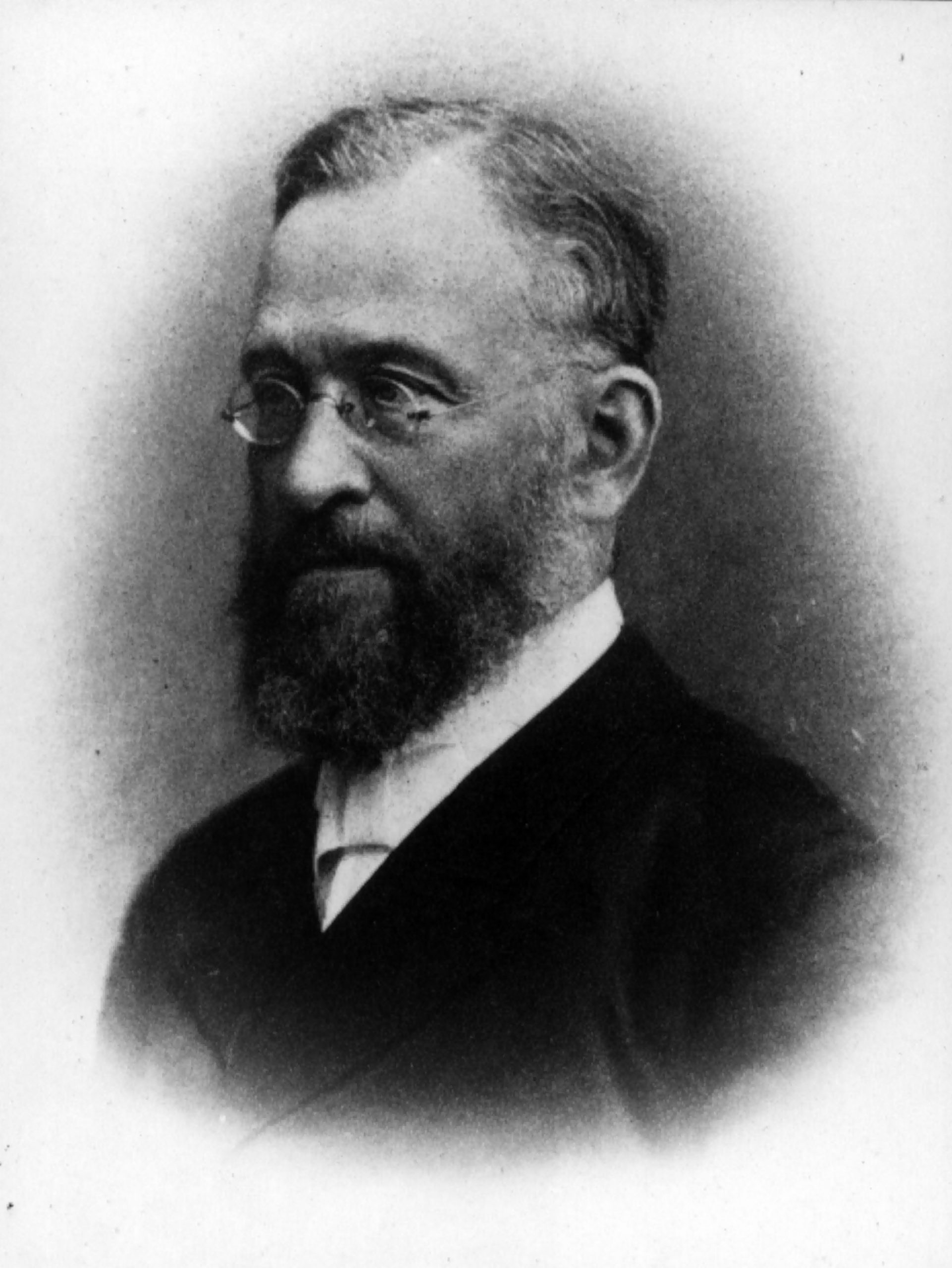
Michael Beliamin was one of the three negotiators of Branobel who was on location in Paris 1984 when Ludvig Nobel had an interest to sell 25 percent of the company shares. The capital income from this business arrangement would make it possible to finance new investments in Baku and Batumi of 5 million rubles.
(more info)
(more info)

